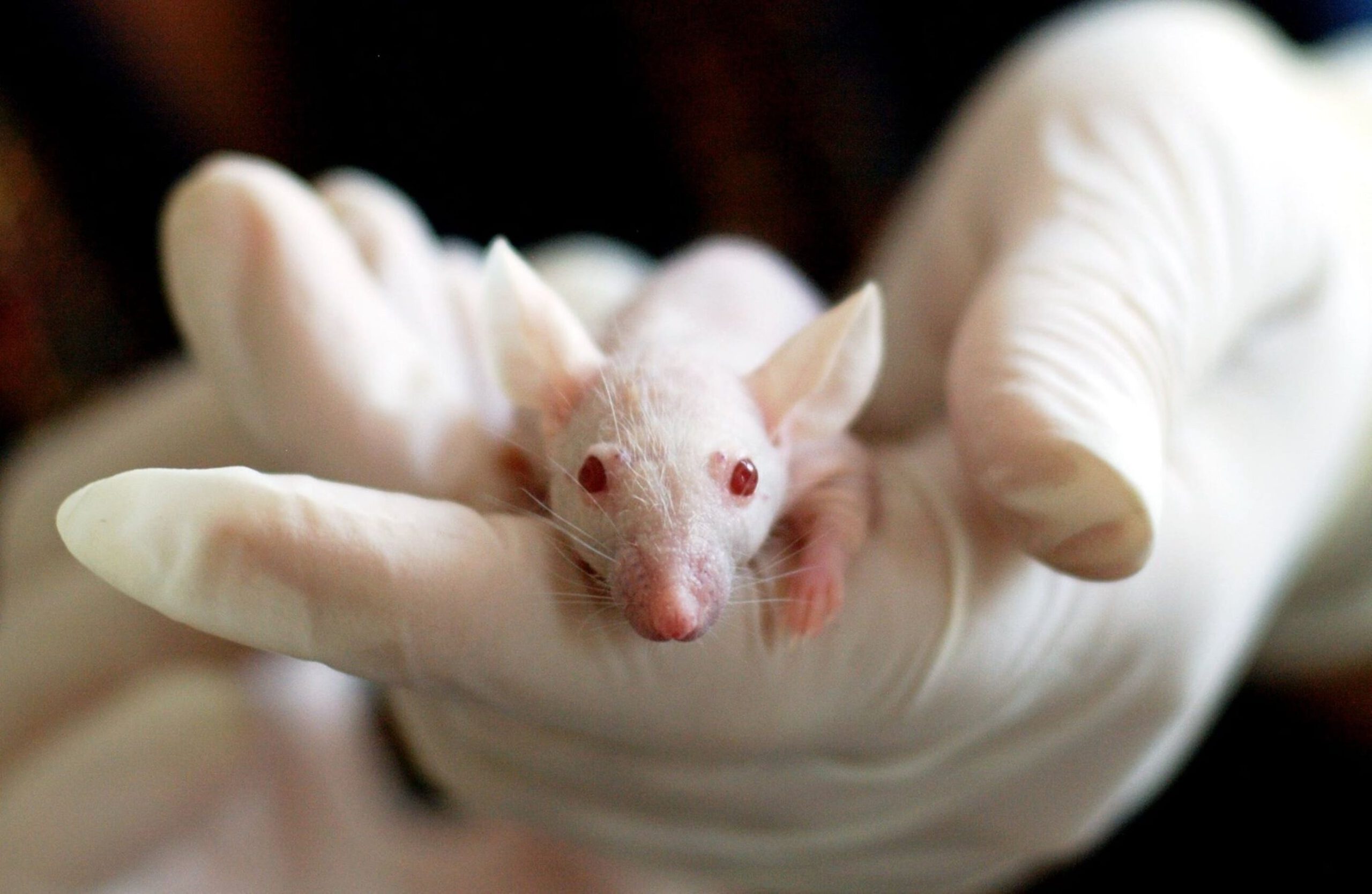
One can hear more and more information about the microbiota-gut-brain axis, the bidirectional interaction between the intestinal microbiota and the central nervous system nowadays, this has become a hot topic. We are becoming increasingly aware that gut microbiota play a significant role in modulating brain functions, behavior and brain development. Pre- and probiotics can influence the microbiota composition, so the question arises, can we have an impact on our mental health by controlling nutrition and using probiotics?
Burokas and colleagues aimed to investigate this possibility in their study (2017), where the goal was to test whether chronic prebiotic treatment in mice modifies behavior across domains relevant to anxiety, depression, cognition, stress response, and social behavior.
In the first part of the study, the researchers fed mice with prebiotics for 10 weeks. They were administered the prebiotics fructo-oligosaccharides (FOS), galacto-oligosaccharides (GOS), a combination of both, or water. FOS and GOS are soluble fibers that are associated with the stimulation of beneficial bacteria such as bifidobacterium and lactobacillus. Behavioral testing started from the third week including the open field test (anxiety – amount of exploratory behavior in a new place), novel object test (memory and learning – exploration time of a novel object in a familiar context), and forced swimming test (depression-like behavior – amount of activity in the cylinder filled water). Meanwhile, plasma corticosterone, gut microbiota composition, and cecal short-chain fatty acids were measured. Taken together, the authors found that the prebiotic FOS+GOS treatment exhibited both antidepressant and anxiolytic effects. However, there were no major effects observed on cognition, nociception, and sociability with the exception of blunted aggressive behavior and more prosocial approaches.
In the second part, FOS+GOS or water-treated mice were exposed to chronic psychosocial stress. Behavior, immune, and microbiota parameters were assessed. Under stress, the microbiota composition of water-treated mice changed (decreased concentration of bifidobacterium and lactobacillus), which effect was rescued by treatment with prebiotics. Furthermore, it was found that three weeks of chronic social stress significantly reduced social interaction, and increased stress indicators (basal corticosterone levels and stress-induced hyperthermia), whereas prebiotic administration protected from these effects. After stimulation with a T-cell activator lectin (concanavalin A), the stressed, water-treated mice group presented increased levels of inflammatory cytokines (interleukin 6, tumor necrosis factor alpha), whereas in animals with prebiotics had these at normal levels.
Overall, these results suggest a beneficial role of prebiotic treatment in mice for stress-related behaviors and supporting the theory that modifying the intestinal microbiota via prebiotics represents a promising potential for supplement therapy in psychiatric disorders.
Reference:
Burokas, A., Arboleya, S., Moloney, R. D., Peterson, V. L., Murphy, K., Clarke, G., Stanton, C., Dinan, T. G., & Cryan, J. F. (2017). Targeting the Microbiota-Gut-Brain Axis: Prebiotics Have Anxiolytic and Antidepressant-like Effects and Reverse the Impact of Chronic Stress in Mice Biological Psychiatry, 82(7), 472–487.

